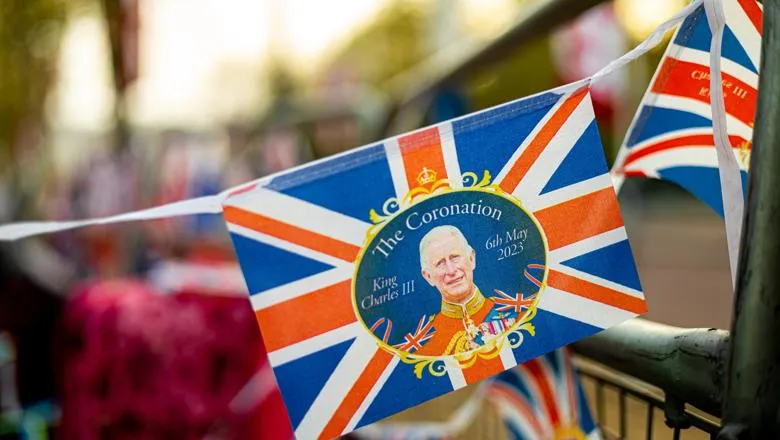The Coronation helped children in the UK feel more connected to King Charles and more aware of his values, according to new research released on the anniversary of the historic event.

When more than 400 schoolchildren were asked how they felt after learning about the Coronation Oath, the majority said they felt more connected to King Charles III because they now know what promises he has made to the people.
In the same survey, most felt more aware of the values which the King and the people think are important to uphold, due to learning about the oath, which forms part of the ceremony.
The research was carried out by Dr George Gross, a Visiting Research Fellow at King's College London, who said it showed the ceremonial event of 2023 helped younger people to connect with the monarch, his values and learn about the UK constitution.
A Coronation plays to the very core of the late Queen Elizabeth II's maxim that the monarchy must be 'seen to be believed' and for children, the ceremony enabled them to connect with King Charles in a new way.
Dr George Gross
He pointed out that King Charles' Coronation had an emphasis on sustainability and inclusivity with numerous references to the environment, from the invitations to the anointing oil, and the bringing together for the first time of different faith leaders from across the country in active coronation roles, beyond those of just the Church of England. He said these themes have continued and, with the anniversary upon us, can be seen again with the Coronation Roll revealed and digitised for the first time, as well as being made 'animal free'.
Hearing the promises he made to them and the values he would uphold was important for the children to understand the role of the monarch and the UK constitution. It seems to have created a stronger bond, which could be particularly important to the Royal Family, given the current health challenges they face which have limited their abilities to carry out some of their public duties.
Dr George Gross
The findings add to research from King's College London's British Coronations Project, which were shared earlier this year, that revealed children in the UK are more in favour of the British monarchy than young adults and that state school pupils back the monarchy more than those at private schools.
The new set of data comes from 412 children in schools in England, Wales, Scotland and Northern-Ireland aged 5-17, with an average age of 9 who were asked if they felt more or less connected to King Charles III because they now know what promises he has made to the people, including themselves. In response, 56.17% said "more", 36.80% said "no change" and 7.02% said "less".
When asked if they felt more or less aware of the values which the King and the people think are important to uphold, 52.30% said "more", 46.49% said "no change" and 1.21% said "less".
Dr Gross said when the sovereign dies, the heir inherits the throne immediately which might lead some to question the value of having a Coronation. However, he said history shows that those who reigned without having a Coronation such as Edward VIII, Lady Jane Grey and Edward V are seen as not fully sovereign.
When the king or queen inherits the throne, they can be seen to be engaged to the state but when they are crowned, this is the formalisation or marriage of the sovereign to the country. A Coronation fully legitimises an uncrowned head of state and provides a very public framework in which a monarch and a regime signal the new priorities of the reign about to unfold.
Dr George Gross
The surveys were carried out as part of King's College London's British Coronations Project - an exhaustive study of the history of British Coronations that uncovered historic accounts and previously undocumented archive material.







